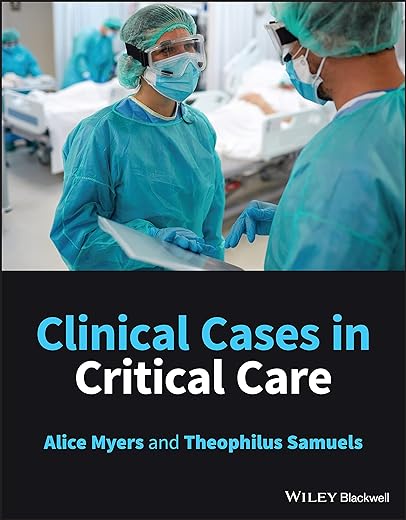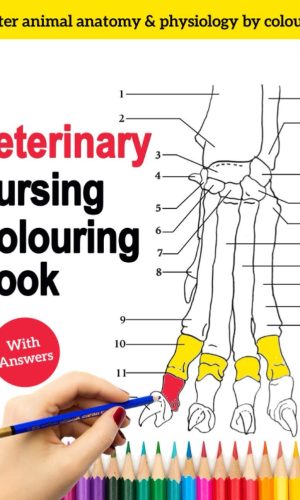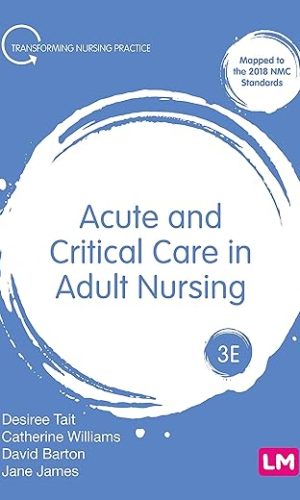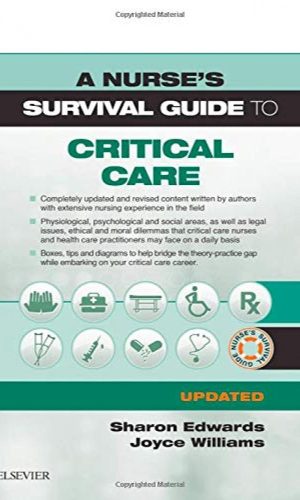Clinical Cases in Critical Care
£33.10
In Clinical Cases in Critical Care, the authors explore core clinical topics and basic sciences in a practical and realistic way, and include comprehensive discussions focusing on critically unwell patients with a variety of presentations and underlying disorders, including COVID-19, hypotension, stroke and drug overdose.
Each case begins with a clinical vignette which generates a series of questions the reader must address. Cases are expanded to discuss differential diagnoses, investigations and management issues. Further questions direct the reader to explore relevant clinical and scientific knowledge – similar to the structure of many professional oral examinations. The final section of the book consists of exam style questions in a multiple choice and single best answer style.
Perfect for medical practitioners working in critical care settings, Clinical Cases in Critical Care provides a thorough and accessible reference for trainee physicians with an interest in critical and emergency care, as well as allied health professionals in the field. This engaging textbook will be an essential companion for anyone getting to grips with the foundation of specialist knowledge required by professionals working in intensive care medicine.
Read more
Additional information
| Publisher | 1st edition (22 Dec. 2022), Wiley-Blackwell |
|---|---|
| Language | English |
| Paperback | 400 pages |
| ISBN-10 | 1119578906 |
| ISBN-13 | 978-1119578901 |
| Dimensions | 17.8 x 2.02 x 25.4 cm |










by Amazon Customer
Truly excellent book of cases. Fantastic real world clinical explanations, all evidence based and perfect for revising for ICM exams (E.g. FFICM). Illustrations all really helpful. Question and answer format is engaging and allows testing of one’s own knowledge. Would highly recommend!
by Amybel Taylor
I love this book because it teaches intensive care via clinical cases, and therefore develops problem solving skills in a realistic way. The practical and logical approach to critical care is difficult to learn when you’re not in the hospital; but this book has helped me immensely. It is a great book to explore the clinical aspects of intensive care medicine without being on the unit – it’s the next best thing!
by L F Pocock
I really love the format of the book, the vignette approach makes difficult concepts much more accesible than many other medical texts. By exploring cases that genuinely occur in critical care with their underpinning physiology/pathophysiology and management it makes difficult topics interesting to read and there is real breadth of detail presented in a very comprehensive but appealing way. I think it is well pitched for those new to critical care but also covers topics that are particularly important to those with more experience taking the FFICM exam or equivalent and has been an essential revision companion.
by Christopher De Vera Ma
Dr. Myers’ and Dr. Samuel’s Clinical Cases in Critical Care cover a myriad of patient conditions that can be seen in a Critical Care setting. The cases herein are presented in a very engaging manner and although it is not designed to be an exhaustive compendium,it has still been a very useful and comprehensive resource not just for revision but in everyday clinical practice as well. The key concepts and information were all explained thoroughly and with clarity and brevity. Overall, it is a very enjoyable read for all healthcare professionals: doctors,nurses, and all allied health practitioners alike!
by Adam W
I work in ICU and my partner is an anaesthetics trainee. This book is a fantastic resource for both of us. It’s very easy to read because each case is broken down into the main learning areas but it all combines to cover everything you could want to know. It’s also packed full of really helpful and clear diagrams. There’s even some practice questions at the end which are great for those thinking about doing exams.
by Blobbi
This is the best book I have ever read on critical care cases. It is very helpful, not only for exams but also for ongoing learning. And not just for me as a very senior doctor, all the team find it useful including junior doctors and nurses just joining the crazy world of critical care. I now read it most nights on the toilet before going to bed (but that’s mainly as I am still to pass the FFICM and I am slightly concerned that everyone on the unit secretly thinks I have no idea what I am talking out despite being the senior fellow. Especially that new matron who is very scary. They do say that imposter syndrome happens even to the very best doctors). Personally I would also love an audiobook version if the authors have any time to record one. Looking forwards to the sequel (unless I have passed the FFICM or EDIC by then).